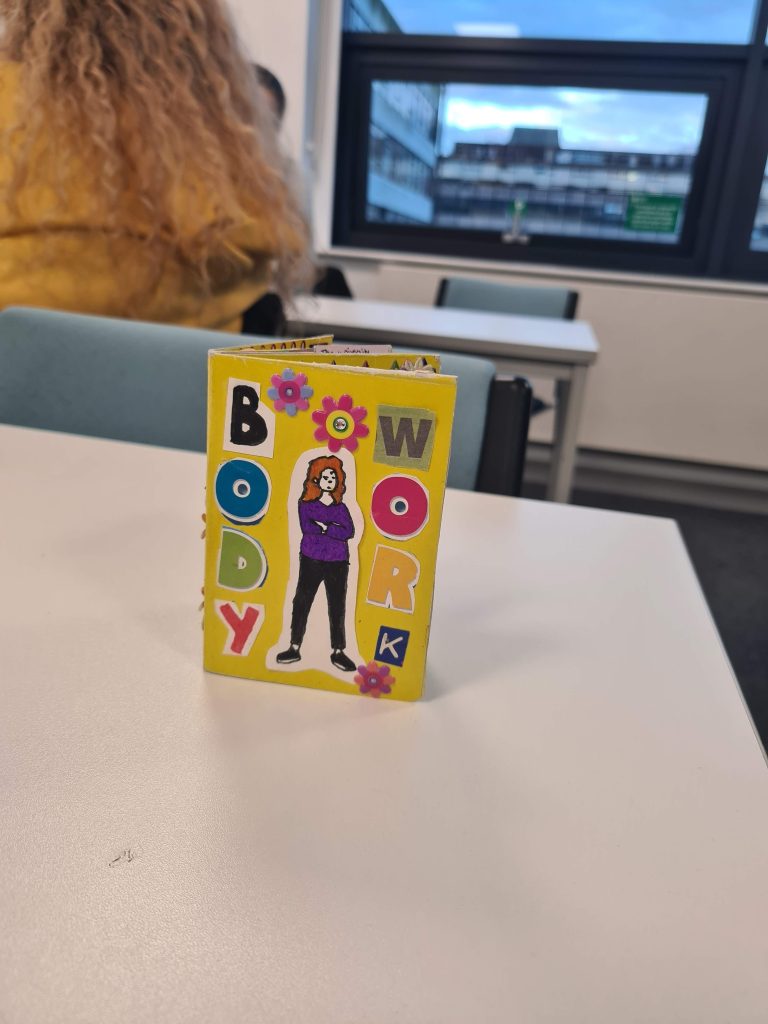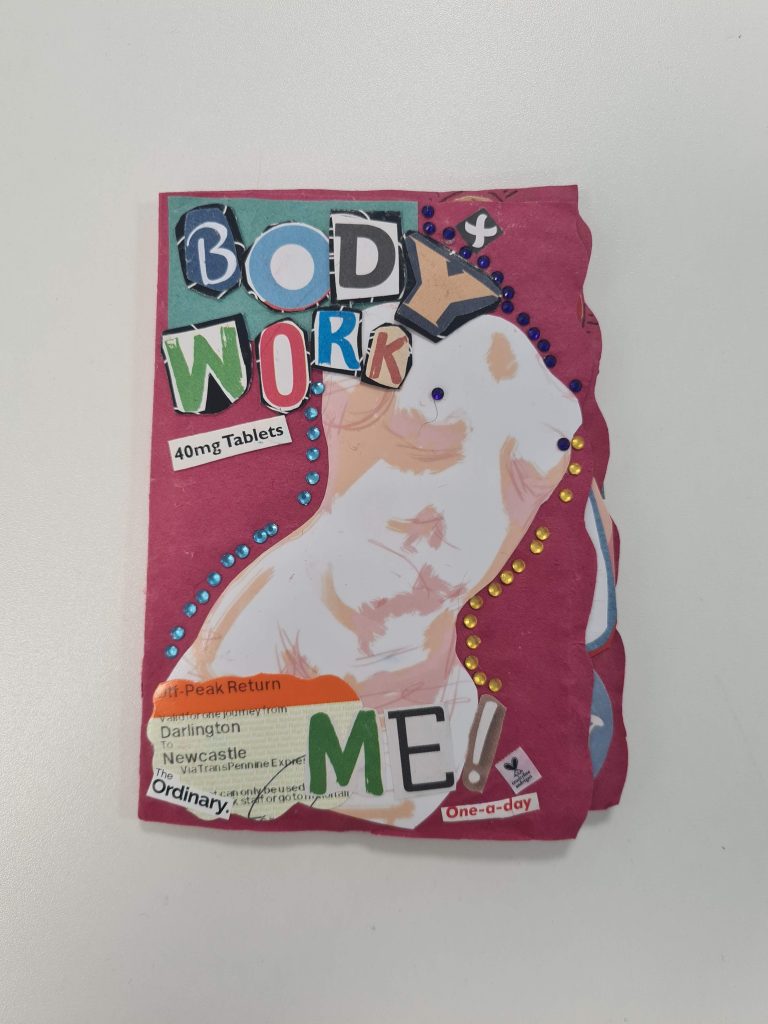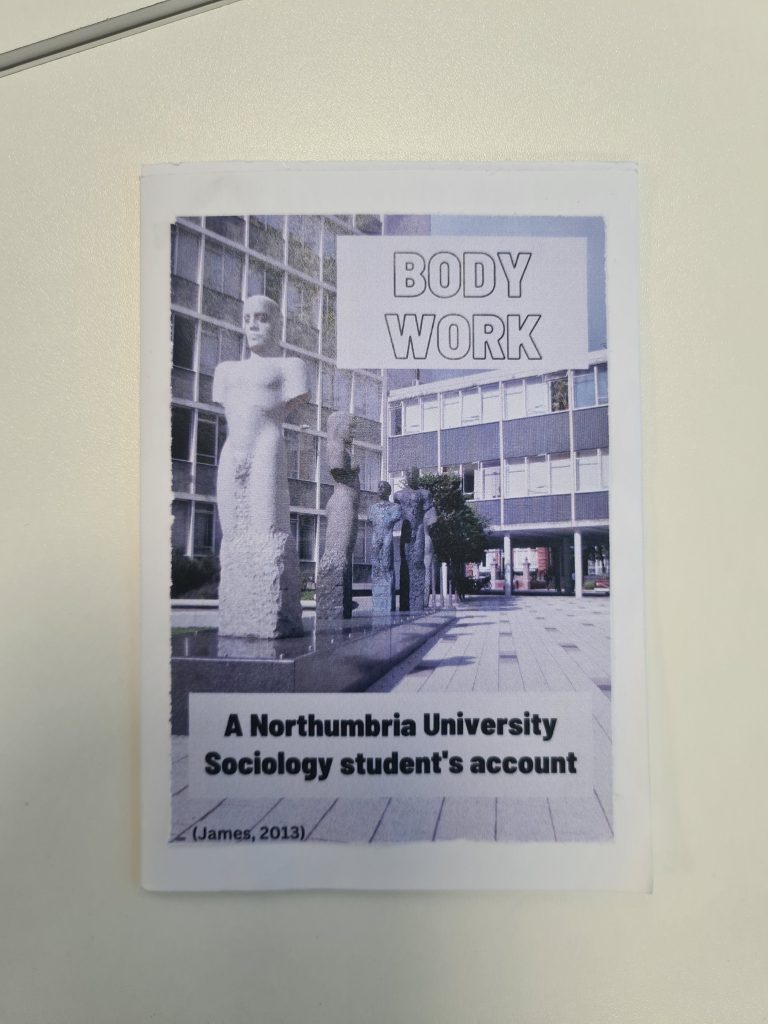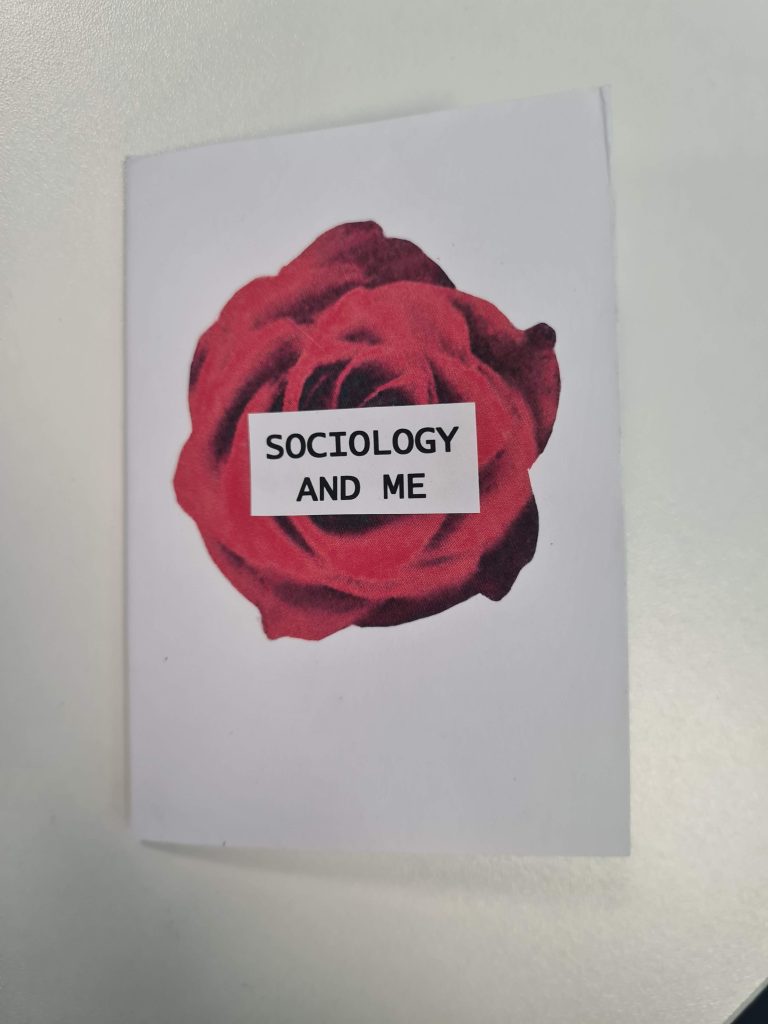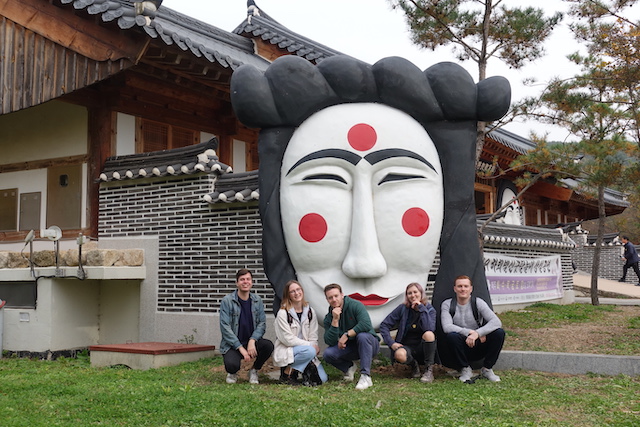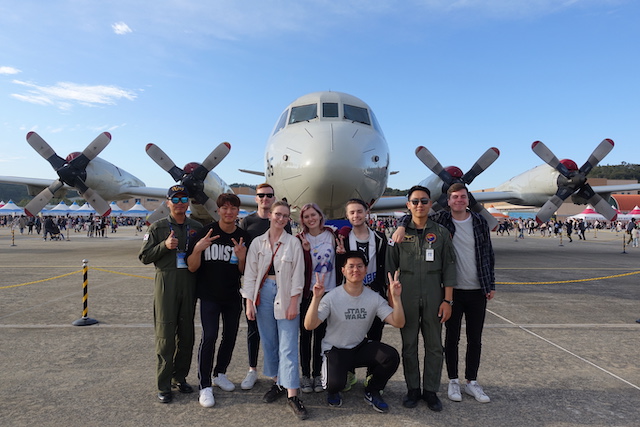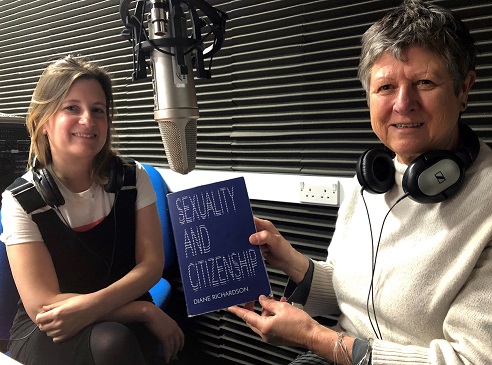Ned Coleman-Fountain, Assistant Professor in Sociology, writes about the Zine assessment for our new module Bodies in Social Worlds, which he co-taught with module leader Sarah Ralph-Lane. Abigail Harrison, a sociology student offers some reflections on making a zine.
Embodying Sociology
Sociology students develop their sociological imaginations in the often unfamiliar world of the university. Here, they learn to ‘do sociology’ and become accomplished in a whole range of academic practices. We learn to navigate new buildings; sit in lecture theatres; talk and interact with other students in seminars, and workshops; and search around the library for texts. We learn how to reference (Harvard style), read complex theory, and listen and sit with others whilst we dissect, in our own language, what one or another concept, word or phrase means. We learn to transform how we see the social world around us through our grasp of sociological ideas.
At the centre of this experience sits our body. Being a student is an embodied experience. We may get a flush of worry as we find ourselves among people we don’t know, and who we think must understand things better than us; our concentration fluctuates through tiredness or sensations of hunger during an afternoon lecture; we put on physical performances of ‘being a student’ for the benefit of ourselves and others, taking up the props of student life: our clothes, our books, our pens, our paper.
Our sociological imagination also involves the body as a way of perceiving and relating to the world. Those ways of perceiving and relating that we develop are often shaped by our sense of our own embodiment. Shaped by our class habitus, ‘race’, gender, sexuality, dis/ability, and age.
Here we come to the concept of embodied sociology. To embody sociology means not only developing a sociology that interrogates the body as a sociological phenomenon. It understands that the body is the medium through which we do the social: we all do sociology as fully embodied human beings. This embodiment matters for how we take up and put the discipline into practice through our sociological imagination.
A Zine for Bodies
In our zine assessment for Bodies in Social Worlds, we asked our students to consider how we might ‘do’ or ‘embody’ sociology as a sort of ‘body work’, and to represent that creatively through zine making. Reflecting on the relationship between sociology and ‘the body’ meant we had to explore how learning about sociology at university has shaped our relationships with our own bodies, from the different settings of learning through to how our developing sociological imagination provides a context for relating to our embodied selves.
Seeing ‘doing sociology’ as a form of body work meant seeing our learning as acting on our bodies.
We were delighted with how the students responded to this task. There was notable anxiety about the newness of the activity. This was something very different from other forms of assessment which we become used to doing. Many students asked that we give them a word count to set some perimeters for writing.
We used this unfamiliarity as a source of inspiration – how, in learning to do sociology at university, do we embody what Bourdieu calls a ‘feel for the game’. To what extent does writing form part of the sociologist’s habitus, and what happens when we seek to break out of conventional modes of scholarly creation.
As students’ widened their view they learned better how to take in the academic space. Zines recorded the feeling of sitting chairs not designed for the bodies some students had; their capacity to maintain attention through lectures and workshops; and other ways that the body interrupts and makes its presence known – or as, Leder suggests, how the body ‘dys-appears. These features spoke the a social organisation of the body as well its phenomenological properties.
Looking further still, zines explored the modes of bodily styling and shaping – or body work as we had explored through the work Debra Gimlin. Students explored how they felt about the way they learned to ‘sit’ in their genders, and enact proper forms of presentation through their clothing choices.
Further still students reflected in their zines on the extent to which ones bodily presence in the classroom marks one as included or not, echoing the words of Nirmal Puwar and Aarti Ratna who delivered one of our guest talks on the module.
Finally, as Sarah and I looked over these objects as they came into us, as we got to hold them in our hands, we were struck by how beautifully personal they were, and how the students had succeeded in using the format not just to explore the concepts, but also to insert themselves in their academic work. Reflective work is often challenging to do in the context of an academic assessment where students often worry about writing in the first person.
In the feedback we got a sense of how happy students were with the work they had managed to do in the end. There was a “great sense of achievement and accomplishment after completion”. They recommend that we continue to run with the assessment, albeit with some changes: more instruction earlier on, some templates, and maybe a word limit. Things to think about, although we might not give way on providing a word limit.
Abigail Harrison: It is right to say there was quite a lot of anxiety around the zine assessment in the beginning. Being the first cohort meant we had no examples of prior work – what was our zine supposed to look like? And whilst I was one of the students who insisted on a word-count originally, upon reflection, the lack of word-count only added to the creative element – my zine would have looked completely different if we had had one.
For the first time, we had complete control over the design, content, and formatting of our assessment and that change was refreshing; physically holding something we had created gave a lot of us a sense of achievement in the end. We had to think about how we could show the meaning behind theory without words, how we could use drawings or photographs to deliver an effective message – skills that I think we had rarely used until this point.
The zine assessment, and the module on a whole, allowed for us to gain a deeper understanding of ourselves, our own bodies, and how they fit into the university setting – it is a module I am grateful to have had the chance to study.
